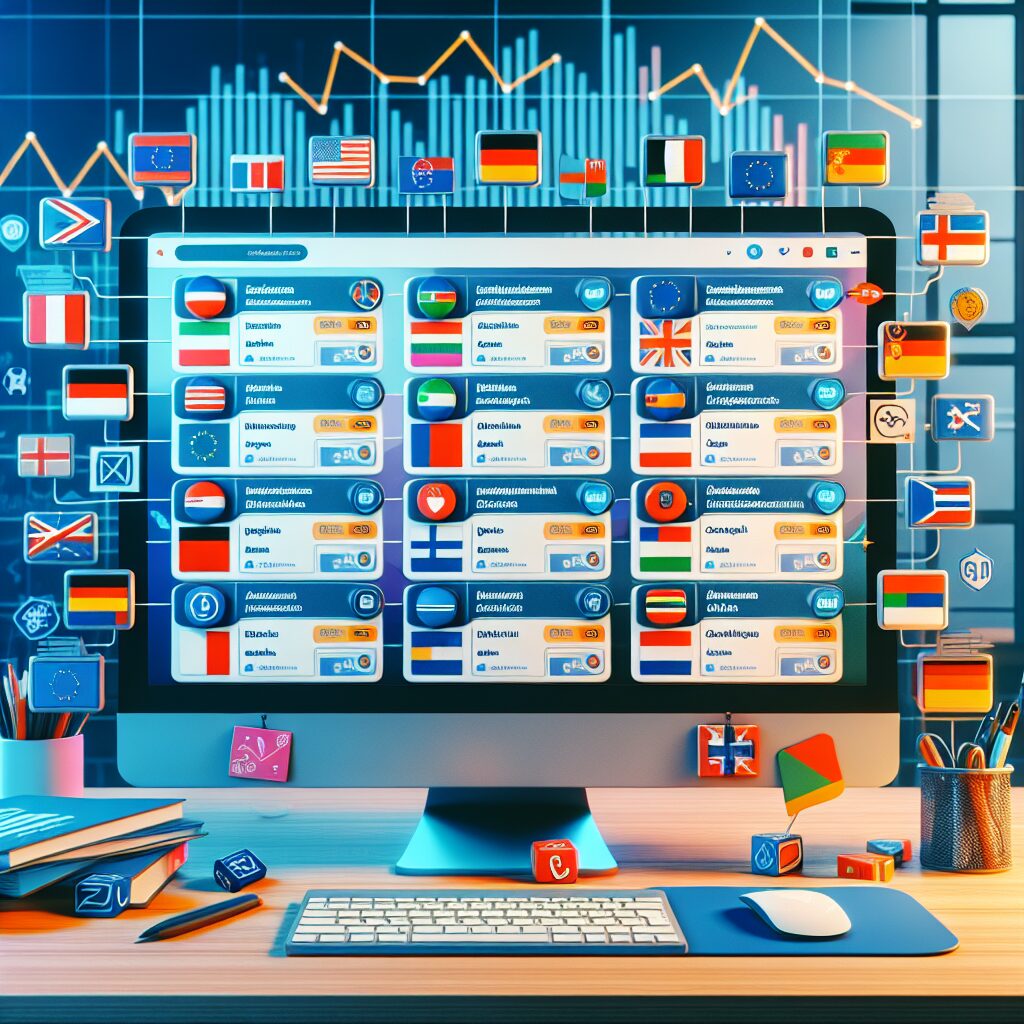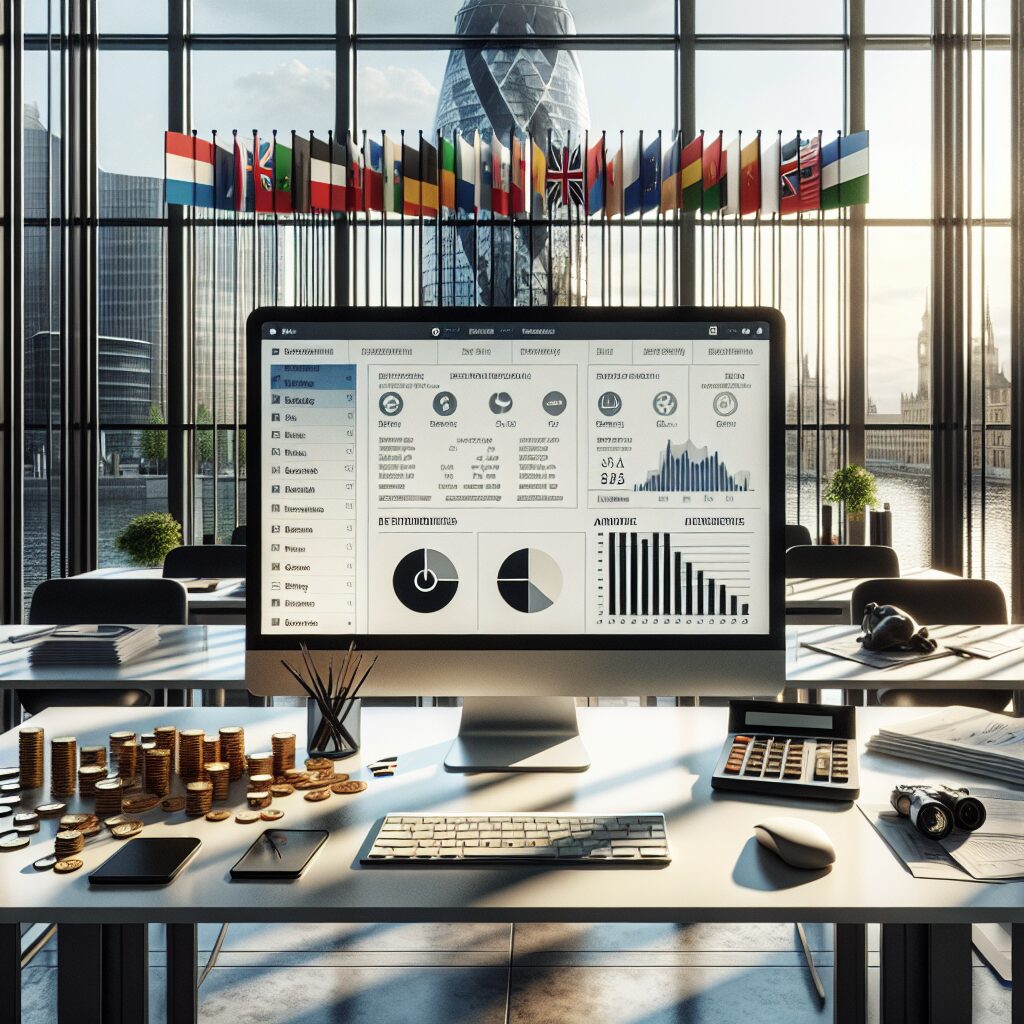About eldris
At Eldris, we automate SEO, multilingual site expansion, and EU compliance for brands scaling across Europe. Our AI-powered platform handles everything from content publishing to regulatory docs—so you don’t have to.
In This Article
- SEO Automation enables accurate, efficient scaling across multiple languages and regions.
- AI tools offer predictive insights that allow brands to stay ahead of competitors.
- Automation improves compliance, content localisation, and large-scale content generation.
- Successful implementation requires strategic planning, training, and KPI alignment.
- Future trends include SEO Co-pilots and ever-smarter AI integrations for personalisation.
Understanding SEO Automation in 2025
AI’s Role in Modern Optimization
SEO Automation refers to the use of technology, particularly artificial intelligence, to perform search engine optimisation tasks with minimal human intervention. In 2025, this strategy has evolved into a cornerstone of digital success, especially for international brands navigating multiple markets. AI-powered tools can now audit websites, identify technical issues, produce high-performing content, and adjust strategies based on real-time search behaviour.
The core role of AI within SEO Automation is to interpret vast amounts of data accurately and act on insights faster than any manual analyst could. These systems can predict trends, assess competitor strategies, and recommend optimal publishing schedules. Moreover, automation platforms integrate with analytics engines to measure ROI on a granular level. For brands with large websites in multiple languages and markets, this level of sophistication is not a luxury—it is essential.

Why International Brands Need Automation
Scaling SEO Across Geographies
Expanding into international markets requires more than simple translation. It demands a nuanced understanding of cultural context, local search engine behaviours, and compliance with region-specific regulations. SEO Automation empowers international brands to adapt campaigns for local relevance while maintaining brand consistency across markets.
Consider the complexity of managing SEO across 25 regions, each with unique language use, search intent, and legal frameworks. Without automation, coordinating keyword localisation, hreflang tagging, and content updates would consume weeks of manual labour. Automation not only accelerates this process but also ensures accuracy and reliability across digital properties. This is particularly critical for brands in highly regulated industries such as finance, healthcare, and pharmaceuticals.
Key Benefits of SEO Workflow Automation
Efficiency, Reach, and Compliance
One of the most compelling reasons to adopt SEO Automation is operational efficiency. Automated systems execute repetitive tasks like meta-tag generation, internal linking, and content clustering with near-zero error rates. This allows SEO professionals to focus on strategic planning, creative development, and high-impact decisions.
Automation also extends the reach of SEO initiatives. For example, scalable campaign deployment across dozens of markets is possible thanks to machine-assisted keyword research and auto-generation of localised landing pages. Brands are no longer bottlenecked by time-consuming manual processes, enabling them to act swiftly in high-opportunity markets.
Furthermore, legal compliance becomes far more manageable. SEO Automation can flag non-compliant content, ensure adherence to accessibility standards, and confirm that all local privacy laws (such as GDPR or LGPD) are met. This not only protects brands from penalties but helps them cultivate trust with local audiences.
Top SEO Automation Tools for Global Use
Looking Ahead: 2025 Tool Stack
The SEO Automation landscape in 2025 is brimming with innovative platforms built for scalability and intelligence. Some of the top-rated tools for international brands include:
- BrightEdge Autopilot: Enables real-time content insights and auto-optimises pages using AI-generated recommendations.
- SEMrush Global Suite: An end-to-end platform for multilingual keyword tracking, SERP monitoring, and backlink automation.
- MarketMuse: Uses machine learning to identify content gaps and automates entire content briefs for multiple languages.
- DeepCrawl: Offers deep site auditing capabilities across subdomains and country-level pages, crucial for global SEO strategy.
- Ahrefs Integrations: With open API capabilities, brands can automate competitor tracking and keyword prioritisation across regions.
Integrating these tools into a cohesive ecosystem ensures that data flows seamlessly through research, execution, and analysis stages, empowering international teams to operate in unison.
Multilingual and Multiregional SEO Made Easy
Automated Localization Strategies
SEO Automation excels at managing the linguistic and cultural intricacies of multilingual and multiregional SEO. Automated translation tools, when combined with natural language processing (NLP) and sentiment analysis, can localise content in both tone and intent.
For instance, tools now allow for programmatic generation of geo-specific meta descriptions and headers that resonate with local audiences. Automated hreflang implementation ensures that search engines serve the right version of content to the correct demographic—a task with enormous SEO implications if mishandled.
Moreover, automation enables A/B testing of localised copy, giving marketers concrete data on what versions perform best in particular geographies. This feedback loop further refines localisation strategies, improving click-through rates and organic visibility over time.
How AI-Driven Insights Improve SEO
Predictive Keyword Targeting
AI is radically enhancing SEO effectiveness through predictive analytics. Instead of reacting to historical data, brands can now anticipate future search trends, thanks to machine learning analysis of user behaviour patterns. Predictive keyword targeting leverages large datasets to forecast demand for search terms weeks or months before they peak.
This means international brands aren’t just keeping up—they’re staying ahead of competition by publishing content prior to surges in interest. AI-driven platforms also cluster semantically related keywords, enabling more robust on-page optimisation strategies.
Additionally, AI can evaluate the performance likelihood of new keyword variants in different markets. This allows global SEO teams to fine-tune their strategies with surgical precision, investing resources only where the data supports measurable growth. See Learn more about SEO Automation for International Brands for more on this predictive approach.
Case Studies: Brands Winning with Automation
Global Campaign Results
Numerous international brands have leveraged SEO Automation to capture new markets efficiently. Consider the example of a global travel company that deployed automated tools for localised content generation across 40 countries. Within six months, their organic traffic in Latin America increased by 150%, with a 40% drop in bounce rates. This was primarily due to culturally relevant content surfaced via AI suggestion engines.
Another case involves a pharmaceutical brand that used Decision Intelligence to create regulatory-compliant content in Europe. By integrating automation into their workflow, they saw a 3x increase in visibility for priority keywords—without increasing headcount. These advancements exemplify the transformative impact of SEO Automation when properly implemented. For more real-world examples, explore Read a related article.
Integrating Automation into Existing Workflows
Step-by-Step Implementation
Introducing automation into an existing SEO workflow requires strategic planning. Here’s a step-by-step guide for effective integration:
- Assess Needs: Begin with a comprehensive audit of tasks that can be automated without sacrificing output quality.
- Select Tools: Choose automation platforms that align with your business’s regional markets, language preferences, and team size.
- Identify Integration Points: Connect your automation tools with existing CMS, analytics, and CRM systems.
- Pilot Programme: Test on a single market to measure performance and gather lessons before rolling out globally.
- Train Teams: Invest in staff education to ensure seamless collaboration between human strategists and AI functionaries.
- Monitor KPIs: Set clear metrics for optimisation success such as CTR, bounce rate reduction, and keyword rankings.
By approaching implementation methodically, international brands can future-proof their SEO workflows while achieving quicker ROI.
Challenges and How to Overcome Them
What to Avoid & Fix
While SEO Automation offers significant benefits, some challenges must be managed to avoid setbacks. Overreliance on auto-generated content without quality oversight is a common pitfall. Automated content must always undergo editorial review to prevent factual inaccuracies or brand voice mismatches.
Another issue lies in the misconfiguration of international SEO settings like hreflang attributes or canonical tags. Although automation tools can handle these, they require initial manual setup and routine audits.
Lastly, data overload is a growing concern. SEO platforms present vast amounts of insight, but without strategic filtering, these can overwhelm marketers. Setting clear goals and monitoring only relevant KPIs can mitigate data fatigue effectively. For further resources on best practices, refer to Read how SEO automation is changing the game.
Future of SEO Automation for International Brands
Emerging Technologies & Best Practices
The future of SEO Automation lies in deeper personalisation, greater voice search integration, and smarter machine learning models. Technologies such as GPT-based content generation and real-time SERP interaction will dominate SEO conversations in coming years.
In addition, we’re seeing the rise of “SEO Co-pilots”—AI assistants embedded directly into browsers or CMS platforms that guide marketers in real-time. These tools offer suggestions, adapt to user-defined tone/style, and update strategies as algorithms change. This advancement will sharpen the competitive edge for brands who adopt them early.
Best practices going forward include ongoing training for marketing teams, reliance on hybrid models combining human creativity with machine speed, and regular audits to ensure automation aligns with business goals. The seamless interplay between automation and human initiative will define SEO performance in 2026 and beyond.
“SEO Automation has become not just a tool, but an essential operational shift for international brands navigating an increasingly complex digital landscape.”
Final Thoughts: Scaling Global SEO with Confidence
SEO Automation is no longer an experimental approach; it is a vital innovation that empowers international brands to achieve consistency, scalability, and market relevance. In 2025, the convergence of AI, multilingual tools, and predictive insights reshapes how companies engage global audiences.
By understanding both the benefits and limitations of automation, and integrating it thoughtfully into workflows, brands can accelerate performance metrics while reducing operational costs. As the digital ecosystem continues to globalise and grow in complexity, those embracing AI-powered SEO strategies will be best positioned for long-term success.
Great guide on seo-automation-a-game-changer-for-international-brands – Community Feedback
What is SEO automation?
SEO automation uses software and tools to automate repetitive SEO tasks like reporting, technical audits, internal linking, and content optimization, saving time and ensuring consistency across global websites.
How does automation benefit international brands?
Automation helps international brands maintain high SEO standards as they expand globally, enabling scalable optimization, streamlined content localization, and faster adaptation to search engine changes.
How is AI revolutionizing SEO strategies?
AI-powered tools provide deeper data analysis, automate content creation, and improve targeting, allowing brands to efficiently reach audiences in multiple countries and languages.








